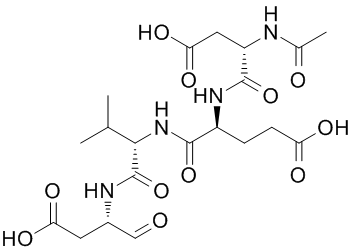Negative craving may be the  most important trigger for relapse, particularly in chronic alcohol-dependent individuals who drink to avoid the unwanted symptoms of withdrawal and mood dysregulation. Several lines of evidence have demonstrated that negative feelings and emotions may be AbMole 4-(Benzyloxy)phenol related to the dynorphin / kopioid receptor system, which may influence the motivational aspects of stress by mediating pro-depressive-like states that involve elements of anhedonia, dysphoria, as well as, pain and aversion in humans and laboratory animals. DYNs, which are posttranslational products of the prodynorphin gene, are the endogenous ligands for KOR. Activation of DYN/ KOR neurotransmission modulates the activity of dopaminergic and glutamatergic neurons located therein. KOR and DYNs are enriched in brain circuits that control mood, motivation, and stimulus-response formation and have been implicated in drug-seeking behavior. Although the function of KOR in alcoholism is not entirely clear, multiple lines of evidence suggest k-opioid system involvement in the development of alcoholism. KOR antagonists could be effective in the treatment of alcoholism. Recently, the effectiveness of nalmefene, a m-opioid receptor antagonist and partial k-agonist, has been demonstrated in an “as needed” approach to alcoholism treatment. Previous studies found associations between the broad phenotype of AbMole Capromorelin tartrate alcohol dependence and sequence variation in human OPRK1 and PDYN genes. Our findings indicate a statistically significant association of the minor allele of the PDYN rs2281285 variant with propensity to use alcohol in order to avoid unwanted emotional or somatic discomfort assessed based on a yes/no question included as part of a structured interview, after adjusting for age and gender. These findings are in agreement with our previous finding, which demonstrated that the minor allele of rs2281285 was also associated with increased propensity to drink in negative emotional states measured with the quantitative IDTS scale. Both, the propensity to use alcohol in order to avoid unwanted emotional or somatic discomfort, as well as, the propensity to drink in negative emotional states are conceptualized as negative or “relief” craving, elicited through negative emotions, history of alcohol withdrawal and attributed to an imbalance between glutamate and gamma-amino-butyric acid neurotransmission in the brain. Yet, results presented here, along with the results of our previous study indicate statistically significant positive association of the minor allele of PDYN rs2281285 with both phenotypes, which supports the consistency of the finding. This result also supports involvement of the DYN/KOR system in mechanisms controlling mood and motivation processes involved in alcohol dependence.
most important trigger for relapse, particularly in chronic alcohol-dependent individuals who drink to avoid the unwanted symptoms of withdrawal and mood dysregulation. Several lines of evidence have demonstrated that negative feelings and emotions may be AbMole 4-(Benzyloxy)phenol related to the dynorphin / kopioid receptor system, which may influence the motivational aspects of stress by mediating pro-depressive-like states that involve elements of anhedonia, dysphoria, as well as, pain and aversion in humans and laboratory animals. DYNs, which are posttranslational products of the prodynorphin gene, are the endogenous ligands for KOR. Activation of DYN/ KOR neurotransmission modulates the activity of dopaminergic and glutamatergic neurons located therein. KOR and DYNs are enriched in brain circuits that control mood, motivation, and stimulus-response formation and have been implicated in drug-seeking behavior. Although the function of KOR in alcoholism is not entirely clear, multiple lines of evidence suggest k-opioid system involvement in the development of alcoholism. KOR antagonists could be effective in the treatment of alcoholism. Recently, the effectiveness of nalmefene, a m-opioid receptor antagonist and partial k-agonist, has been demonstrated in an “as needed” approach to alcoholism treatment. Previous studies found associations between the broad phenotype of AbMole Capromorelin tartrate alcohol dependence and sequence variation in human OPRK1 and PDYN genes. Our findings indicate a statistically significant association of the minor allele of the PDYN rs2281285 variant with propensity to use alcohol in order to avoid unwanted emotional or somatic discomfort assessed based on a yes/no question included as part of a structured interview, after adjusting for age and gender. These findings are in agreement with our previous finding, which demonstrated that the minor allele of rs2281285 was also associated with increased propensity to drink in negative emotional states measured with the quantitative IDTS scale. Both, the propensity to use alcohol in order to avoid unwanted emotional or somatic discomfort, as well as, the propensity to drink in negative emotional states are conceptualized as negative or “relief” craving, elicited through negative emotions, history of alcohol withdrawal and attributed to an imbalance between glutamate and gamma-amino-butyric acid neurotransmission in the brain. Yet, results presented here, along with the results of our previous study indicate statistically significant positive association of the minor allele of PDYN rs2281285 with both phenotypes, which supports the consistency of the finding. This result also supports involvement of the DYN/KOR system in mechanisms controlling mood and motivation processes involved in alcohol dependence.
The association of the PDYN rs2281285 variant with the broader phenotype of alcohol dependen
Leave a reply